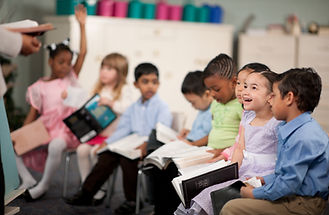
NESS Social Saturdays
What are social skills?

Social skills are the skills we use everyday to interact and communicate with others. They include verbal and non-verbal communication, such as speech, gesture, facial expression and body language. A person has strong social skills if they have the knowledge of how to behave in social situations and understand both written and implied rules when communicating with others. Children with a diagnosis of Autism Spectrum Disorder (ASD), Pervasive Developmental Disorder (Not Otherwise Specified) and Asperger’s have difficulties with social skills.

Why are social skills important?
Social skills are vital in enabling an individual to have and maintain positive interactions with others. Many of these skills are crucial in making and sustaining friendships. Social interactions do not always run smoothly and an individual needs to be able to implement appropriate strategies, such as conflict resolution when difficulties in interactions arise. It is also important for individuals to have ’empathy’ (i.e. being able to put yourself into someone else’s shoes and recognise their feelings) as it allows them to respond in an understanding and caring way to how others are feeling.
What are the building blocks necessary to develop social skills?
-
Attention and concentration: Staying focused and working without distraction to complete tasks.
-
Receptive language: Understanding spoken language.
-
Expressive language: Communicating wants, needs, thoughts, and ideas through speech, signs, or other methods.
-
Play skills: Engaging in enjoyable, often goal-oriented activities.
-
Pre-language skills: Nonverbal communication like gestures, facial expressions, imitation, joint attention, and eye contact.
-
Self-regulation: Managing emotions, behavior, attention, and activity levels appropriately.
-
Executive functioning: Advanced reasoning and thinking skills.
-
Planning and sequencing: Completing tasks in clear, organized steps to reach a goal.
What can be done to improve social skills?
-
They might:
-
Use little, inconsistent, or fixed eye contact
-
Struggle with turn-taking in conversation
-
Use awkward body language (too close or too far)
-
Forget polite phrases (please, thank you, hello, goodbye)
-
Have trouble starting or ending conversations
-
Interrupt often
-
Go off-topic or give irrelevant responses
-
Talk at others instead of with them
-
Not ask appropriate questions
-
Repeat topics or focus only on personal interests
-
Not see the consequences of their actions
-
Show little interest in others’ ideas
-
Misunderstand jokes, sarcasm, or idioms
-
Take things very literally
-
Speak with unusual tone or rhythm
-
Miss facial cues or voice tone differences
-
Fail to ask for clarification when confused
-
React poorly when asked to change behavior
-
Overshare personal information with strangers
-
Struggle to read others’ feelings
-
Respond inappropriately to teasing or disappointment
-
Not adjust language for different situations
-
Lack empathy or imagination
-
Seem self-centered



